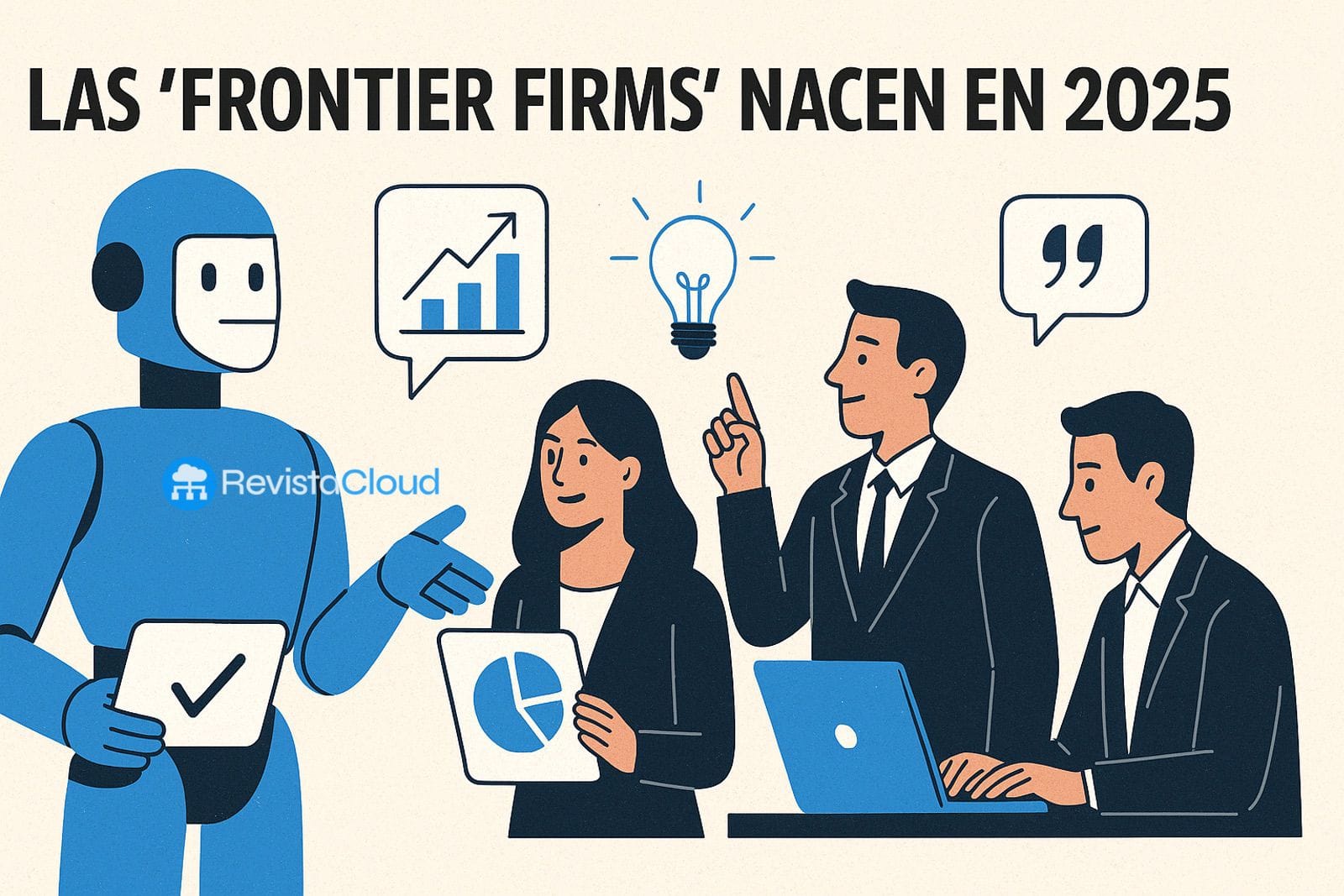Sure! Here’s the translation:
—
Microsoft identifies the most advanced organizations in AI adoption, capable of redefining work through intelligent agents and new professional roles
The year 2025 will be remembered for more than just technological advancements. According to Microsoft’s new report Work Trend Index 2025, a new class of organizations has emerged: Frontier Firms, companies that have deeply and strategically integrated artificial intelligence (AI) into their structure and operations.
These pioneering firms not only implement AI but make it the central focus of their productive and operational capabilities. According to the report, a Frontier Firm is defined by its widespread deployment of AI across the organization, a high degree of technological maturity, active adoption of intelligent agents, and, above all, a strong belief that these autonomous systems are key to achieving a real return on investment (ROI).
A Paradigm Shift in Work Organization
The study, conducted from February to March 2025, surveyed 31,000 knowledge workers across 31 global markets. The results reveal that 60% of current meetings are already ad hoc and that work increasingly crosses time zones, with 30% of meetings involving participants from different regions. This new work context is accelerating the need for more dynamic and scalable structures, where AI agents autonomously take on tasks.
“Frontier Firms are reinventing not only how work is done but who does it. People are no longer the sole executors but are becoming managers of agents, in what Microsoft calls the role of agent boss,” explains Karim R. Lakhani, author of the report.
Intelligent Agents and Rising New Roles
The rise of these agents has led to a new generation of professional profiles. Among the most in-demand are:
- AI Agent Specialist (30%)
- AI ROI Analyst (29%)
- Chief AI Officer (27%)
- AI Trainer (32%)
- AI Security Specialist (31%)
The report indicates that many of these positions didn’t exist just a year ago, reflecting the speed at which the market is adapting.
Human-Agent Collaboration: The New Work Team
A key finding of the study is that AI-leading organizations are utilizing multi-agent systems, where multiple agents work together to execute complex workflows or replace traditionally outsourced skills.
In these firms, human-agent collaboration becomes the norm. Employees are responsible for training, coordinating, and overseeing the agents, redefining their roles within the organizational structure. The traditional organizational chart gives way to a project, skill, and results-based structure.
Impact on Productivity and Talent
One of the most striking indicators from the report is the increase in work outside normal hours. On average, each user receives 58 messages outside of working hours, and night meetings have increased by 16% compared to the previous year.
This more flexible yet demanding model requires advanced AI tools to prevent fatigue and maintain productivity. According to Microsoft 365 data, employees receive an interruption every two minutes during their workday, totaling 275 disruptions daily.
A Global Phenomenon
Data has been collected from countries across all continents, including Spain, Germany, Brazil, India, the United States, France, and Japan. An expanded sampling was also conducted in nine key regions of the U.S., such as New York, Austin, and San Francisco.
In addition to the quantitative survey, Microsoft interviewed experts, academics, and 12 native AI startups to understand how they are structuring their operations from the ground up with agents as their backbone.
Conclusion: Leading in the Era of AI Requires Vision and Action
Microsoft’s message is clear: the future is already here, and those who lead its adoption will make a difference. Becoming a Frontier Firm is not just about implementing AI, but about reinventing processes, roles, and mindsets to turn artificial intelligence into a true engine for growth.
Access the report at Work Trend Index Annual Report
—

